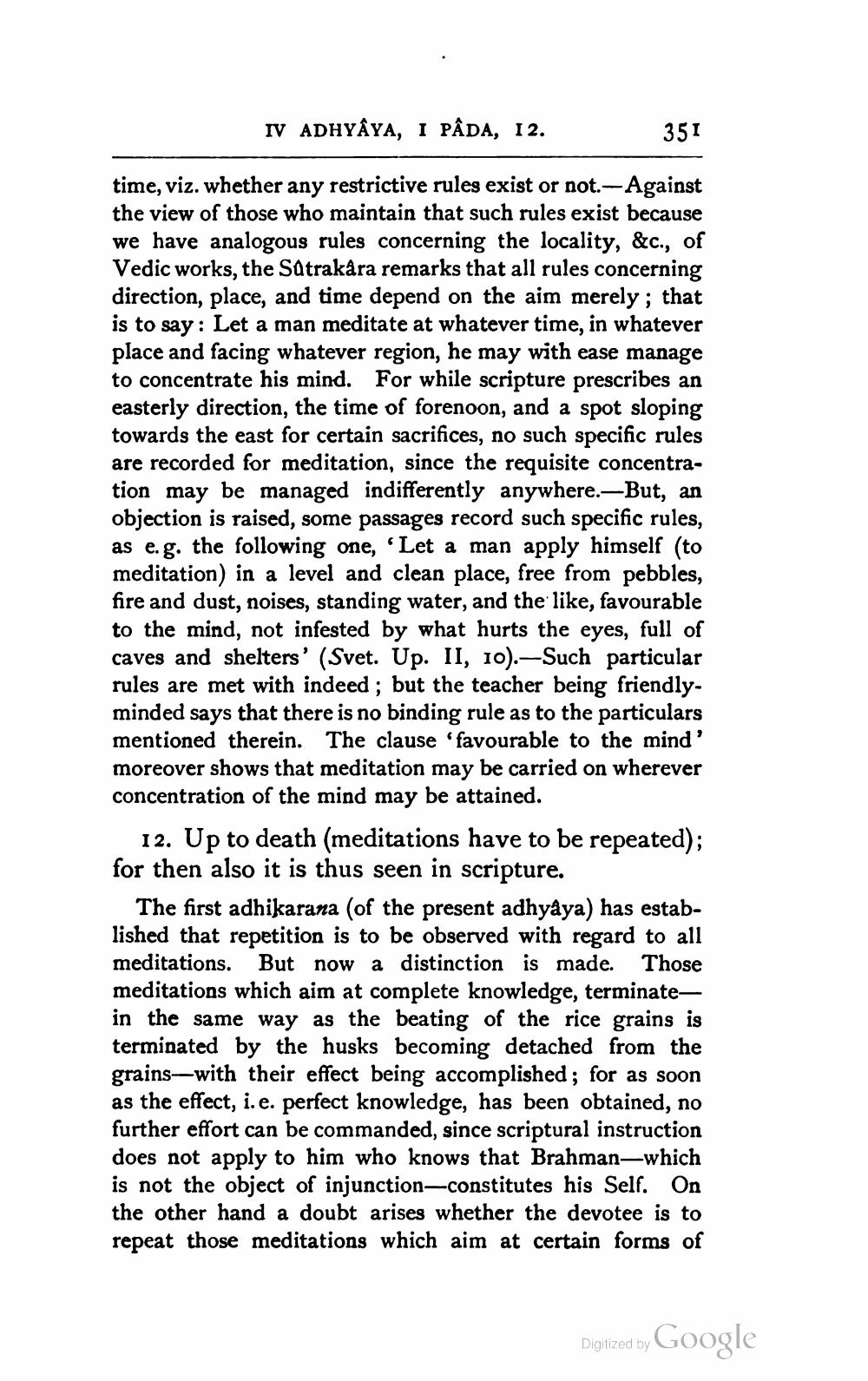________________
IV ADHYÂYA, I PÂDA, 12.
351
time, viz. whether any restrictive rules exist or not.- Against the view of those who maintain that such rules exist because we have analogous rules concerning the locality, &c., of Vedic works, the Satrakära remarks that all rules concerning direction, place, and time depend on the aim merely; that is to say: Let a man meditate at whatever time, in whatever place and facing whatever region, he may with ease manage to concentrate his mind. For while scripture prescribes an easterly direction, the time of forenoon, and a spot sloping towards the east for certain sacrifices, no such specific rules are recorded for meditation, since the requisite concentration may be managed indifferently anywhere.—But, an objection is raised, some passages record such specific rules, as e.g. the following one, 'Let a man apply himself (to meditation) in a level and clean place, free from pebbles, fire and dust, noises, standing water, and the like, favourable to the mind, not infested by what hurts the eyes, full of caves and shelters' (Svet. Up. II, 10).-Such particular rules are met with indeed; but the teacher being friendly. minded says that there is no binding rule as to the particulars mentioned therein. The clause "favourable to the mind' moreover shows that meditation may be carried on wherever concentration of the mind may be attained.
12. Up to death (meditations have to be repeated); for then also it is thus seen in scripture.
The first adhikarana (of the present adhyâya) has established that repetition is to be observed with regard to all meditations. But now a distinction is made. Those meditations which aim at complete knowledge, terminatein the same way as the beating of the rice grains is terminated by the husks becoming detached from the grains--with their effect being accomplished; for as soon as the effect, i.e. perfect knowledge, has been obtained, no further effort can be commanded, since scriptural instruction does not apply to him who knows that Brahman—which is not the object of injunction-constitutes his Self. On the other hand a doubt arises whether the devotee is to repeat those meditations which aim at certain forms of
Digitized by
Digized by Google




